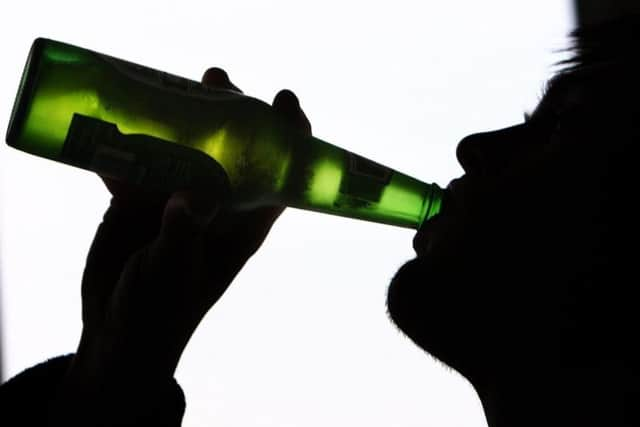Alcohol industry '˜would lose £13bn' if we all drank safe amounts
Research by the University of Sheffield and the Institute of Alcohol Studies suggests that alcohol companies have resisted minimum pricing because a fall in harmful drinking would be “financially ruinous”.
Huge increases in the price of beer and wine would be needed to maintain profits if everyone drank within the recommended limits, according to the study, which found that two thirds of alcohol industry revenue in England comes from people drinking at risky levels. The researchers said their study highlights a “conflict of interest” in the drinks industry’s involvement in setting Government alcohol policy.
Advertisement
Hide AdAdvertisement
Hide AdAveek Bhattacharya, Policy Analyst at the Institute of Alcohol Studies, said: “Alcohol causes 24,000 deaths and over 1.1m hospital admissions each year in England, at a cost of £3.5bn to the NHS.


“Yet policies to address this harm, like minimum unit pricing and raising alcohol duty have been resisted at every turn by the alcohol industry.
“Our analysis suggests this may be because many drinks companies realise that a significant reduction in harmful drinking would be financially ruinous.
“The Government should recognise just how much the industry has to lose from effective alcohol policy, and be more wary of its attempts to derail meaningful action through lobbying and offers of voluntary partnership.
Advertisement
Hide AdAdvertisement
Hide Ad“Protecting alcohol industry profits should not be the objective of public policy.
“Previous research has shown that reducing alcohol consumption would not only save lives and benefit the exchequer, but could also boost the economy and create jobs.”
Sales revenue would decline by 38 per cent if all drinkers complied with the Chief Medical Officer’s guidance on alcohol consumption, according to the study, published in the journal Addiction. Drinkers consuming more than the Government’s recommended 14 units per week make up 25 per cent of the population but provide 68 per cent of the alcohol industry’s revenue.
The four per cent of the population who drink at levels classed as “harmful” account for 24 per cent of the total value of alcohol sold, the research found.
Advertisement
Hide AdAdvertisement
Hide AdIf everyone stayed within the recommended level, the average price of a pint in a pub would have to rise by £2.64 and a bottle of supermarket wine by £4.36 to maintain industry revenues.
Colin Angus, Research Fellow at the University of Sheffield’s Alcohol Research Group, said: “The size of these increases cast serious doubt on the industry’s claims that it supports moderate drinking.”
But John Timothy, Chief Executive of alcohol industry body the Portman Group, said: “In the last decade or so binge drinking has fallen by nearly a quarter and alcohol-related violence, drink-driving casualties and acceptance of drinking among children have also fallen significantly.
“Drinks producers have contributed to this decline through their commitment to encouraging moderation through the development of a wide range of low and no alcohol products and the removal of over one billion units of alcohol from the market.
Advertisement
Hide AdAdvertisement
Hide Ad“These actions have been welcomed by Government and leading charities and the industry will continue to work alongside public and third sector partners to further reduce alcohol-related harms.”
A Government spokesperson said: “Alcohol consumption overall is falling, but we are committed to further reducing alcohol-related harms and work is underway to develop a new alcohol strategy.
“This country already has some of the highest taxes on spirits compared with other European countries, and the UK Chief Medical Officers’ guidelines are available to help adults to make informed choices about their drinking.
“We have been very clear to industry that we expect them to reflect this guidance on alcohol labels and continue to engage with them on this. “